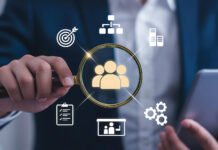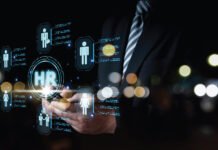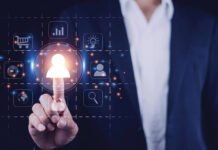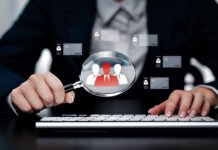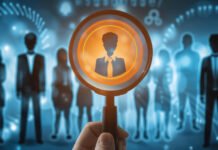A brand-new period is dawning upon the world of personnel—the period of knowledge, driven by AI. With developments like ChatGPT blazing a trail, generative AI has actually become an effective device for efficiently removing important understandings from the large rivers of information within companies. As firms venture into the world of large language models (LLMs), they furnish themselves with the capability to effortlessly merge information from varied domains such as HR, finance, and employment. This influx of data, once harnessed by LLMs, becomes readily accessible to any employee, revolutionizing the process of information retrieval and empowering the workforce like never before.
Table of Contents:
1. The Evolution of the Intelligence Era
2. Capability Needs to Be Tempered by Caution
3. HR will need to Step Up
Conclusion
1. The Evolution of the Intelligence Era
The rise of generative AI represents a significant change in both the systems used and the culture that authors and consumers. With LLMs, businesses can pull information from a wide range of sources, which is accessible through a simple and direct query. It means that any employee can get the information that they need, improving accessibility, collaboration, and the productivity and efficiency of the wider company.
For instance, when a sales representative requires customer or product data, they don’t need to search through databases or interact with several individuals. They simply interact with a company chatbot powered by AI. Not only is it easier to identify what you want, but it also allows the company to establish a connection with their employees to be less and provide less time on decision making while eventually providing worth to the organization. It would be challenging to identify many professions that wouldn’t benefit from generative AI, but those within the HR field benefit particularly strongly. As there is higher transparency of pay rates, retention levels, and staff engagement, HR business partners are able to make improved decisions regarding what their teams require to perform.
2. Capability Needs to Be Tempered by Caution
AI has the ability to improve employee empowerment. With that said, companies must use caution when rolling out the technology. As organizations adopt generative AI, they should be aware of and address privacy and security concerns. It is crucial to double down on AI-generated insights’ accuracy and trustworthiness to prevent misinformation and bad decision-making.
Given AI’s complexity, HR leaders must also be ethically-minded about its deployment. The decision to utilize it impacts workforce management capabilities and the well-being of employees. Therefore, HR should strategically integrate it, balancing the benefits of AI with ethical implications.
3. HR will need to Step Up
Being the front-end of organizational transformation, the role of HR leaders becomes important while building up AI integration into workspaces. In order to take advantage of AI’s potential, HR teams need to make investments in the career development of their employees through upskilling initiatives aimed at the enhancement of digital skills and AI literacy. Besides, building a culture of ongoing learning and adaptation to new technologies should also be acted upon in order to efficiently accommodate innovations.
Moreover, champions of HR must encourage and advocate for transparency and communication on technology implementation issues, addressing any concerns or implications that may arise among employees. By building trust and involving employees, HR can overcome change resistance and promote the successful adoption of AI across the enterprise.
Conclusion
Generative AI births a new era of power for workers, as it may drastically change the way organizations obtain and store data. But the incorporation of AI in the workplace not only depends on the ability of the HR managers to be prepared and adaptable, but also on the readiness and adaptability of the employees and the workforce as a whole. Through the adoption of AI in a way that trains the necessary skills and ethics management, HR employees can manage the complexity of the new intelligence era and lead the workforce towards being more creative and innovative.
Explore Hrtech Articles for the latest Tech Trends in Human Resources Technology

